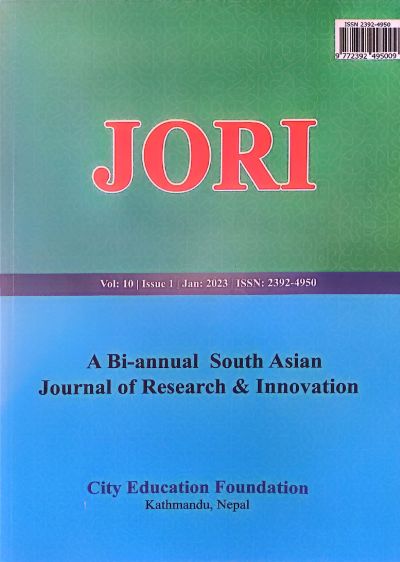Effectiveness of Social Health Insurance Program in Nepal: Challenges and Recommendations
DOI:
https://doi.org/10.3126/jori.v10i1.66021Keywords:
health insurance implementation, universal health coverage, financial protection, healthcare access challenges, social health security program, health service improvementAbstract
The article explores into the concept of health insurance in Nepal as a means of financial protection against unexpected medical expenses. It outlines commitment to providing fundamental health care as a citizen's right and the challenges faced in Nepal to achieving this goal. The study highlights the initiation and expansion of the Social Health Insurance Program, marking to suggestion financial security to individuals and families during illness. Despite progress, economic, social, and institutional barriers hinder many citizens' access to adequate health services. The paper emphasizes the importance of health insurance for low and middle-income families, addressing concerns of economic hardship due to healthcare costs. Challenges in the implementation of the program are discussed, including issues related to organizational systems, service delivery, infrastructure, and budgetary constraints. The need for collaboration between government bodies, quality improvement in healthcare facilities, and better management of health workers is emphasized. The successful implementation of health insurance in Nepal is seen as a pivotal step towards achieving universal health coverage, alleviating financial burdens on citizens, and contributing to national development goals and international commitments.




